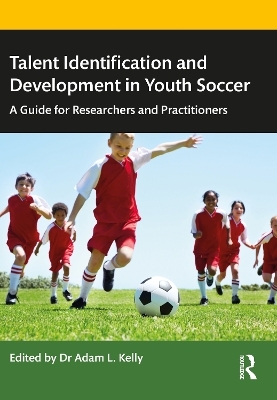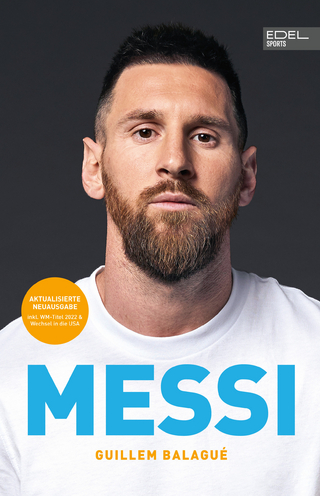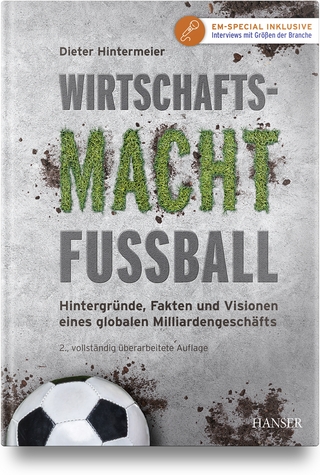
Talent Identification and Development in Youth Soccer
Routledge (Verlag)
978-1-032-23275-1 (ISBN)
Talent development pathways in youth soccer provide opportunities for young players to realise their potential. Such programmes have become increasingly popular throughout governing bodies, professional clubs, and independent organisations. This has coincided with a rapid rise in sport science literature focused specifically on optimising player development towards expertise.
However, the decreasing age of recruitment, biases in selection, inconsistencies in the language used, underrepresented populations, and large dropout rates from pathways have magnified the potential flaws of existing organisational structures and settings. Moreover, despite both the professionalisation of talent development pathways and growing research attention, we still know little about the characteristics that facilitate accurate recruitment strategies into pathways and long-term development outcomes.
Talent Identification and Development in Youth Soccer provides an all-encompassing guide for both researchers and practitioners by gathering the existing literature to help better understand the current context of this discipline. Chapters are contributed by a team of leading and emerging international experts, examining topics such as technical, tactical, physical, psychological, social, activities and trajectories, career transitions, relative age effects, creativity, and genetics, with each chapter offering important considerations for both researchers and practitioners.
With a dual emphasis on both theory and practice, this book is an important text for any student, researcher, coach, or practitioner with an interest in talent identification, talent development, youth soccer, soccer coaching, or expertise and skill acquisition.
Adam L. Kelly, PhD, is Senior Lecturer and Course Leader for Sports Coaching and Physical Education at Birmingham City University, United Kingdom. Alongside attaining his PhD at the University of Exeter, United Kingdom, Adam is Senior Fellow of the HEA, BASES Sport and Exercise Scientist, and FA UEFA A and AYA Licenced Coach. Broadly, his research interests explore organisational structures in youth sport to better understand the athlete development process and to create more appropriate settings. He is currently collaborating with a number of regional, national, and international organisations across a range of sports, including cricket, rugby, soccer, squash, and swimming.
1. Disciplinary Approaches and Chapter Summaries: Introducing Talent Identification and Development in Youth Soccer. 2. Technical: Examining Subjective and Objective Performance Parameters That Contribute Towards Developmental Outcomes and Career Progression. 3. Tactical: Measuring and Developing Tactical Knowledge and Performance in Youth Soccer Players. 4. Physical: Considering the Influence of Maturity Status on Physical Performance. 5. Psychological: Supporting Psychosocial Growth, Development, and Potential Challenges Experienced in Youth Soccer. 6. Social: Investigating Social Influences on Talent and Development in Soccer. 7. Sociocultural: Reflecting on the Social and Cultural Influences on Talent in Soccer. 8. Activities and Trajectories: Exploring Pathways of Athlete Development in Youth Soccer. 9. Career Transitions: Navigating Players from Youth Team to First Team. 10. Relative Age Effects: Looking Back and Moving Forward. 11. Playing-Up and Playing-Down: Conceptualising a ‘Flexible Chronological Approach’. 12. Creativity: Creating Supportive and Enriching Environments. 13. Transformational Coaching: Developing a Global Rating Scale to Observe Coach Leadership Behaviours. 14. Genetics: Understanding the Influence and Application of Genetics in Soccer. 15. Nutrition: Optimising Development and Performance Through Nutrition. 16. International Perspectives: Evaluating Male Talent Pathways from Across the Globe. 17. Gender: Disentangling Talent Identification and Development in Women’s and Girls’ Soccer. 18. Para-Soccer: Emphasising the Complex and Multidimensional Factors When Identifying and Developing Players with Disabilities. 19. The Goalkeeper: Highlighting the Position Data Gap in Talent Identification and Development. 20. Language Games: Improving the Words We Use in Soccer Research and Practice. 21. The COVID-19 Pandemic: Rethinking Directions for Talent Development in Youth Soccer. 22. From Knowledge to Action: Bridging the Gap Between Research and Practice in Youth Soccer.
| Erscheinungsdatum | 13.09.2023 |
|---|---|
| Zusatzinfo | 33 Tables, black and white; 29 Line drawings, black and white; 11 Halftones, black and white; 40 Illustrations, black and white |
| Verlagsort | London |
| Sprache | englisch |
| Maße | 174 x 246 mm |
| Gewicht | 716 g |
| Themenwelt | Sport ► Ballsport ► Fußball |
| ISBN-10 | 1-032-23275-7 / 1032232757 |
| ISBN-13 | 978-1-032-23275-1 / 9781032232751 |
| Zustand | Neuware |
| Haben Sie eine Frage zum Produkt? |
aus dem Bereich


